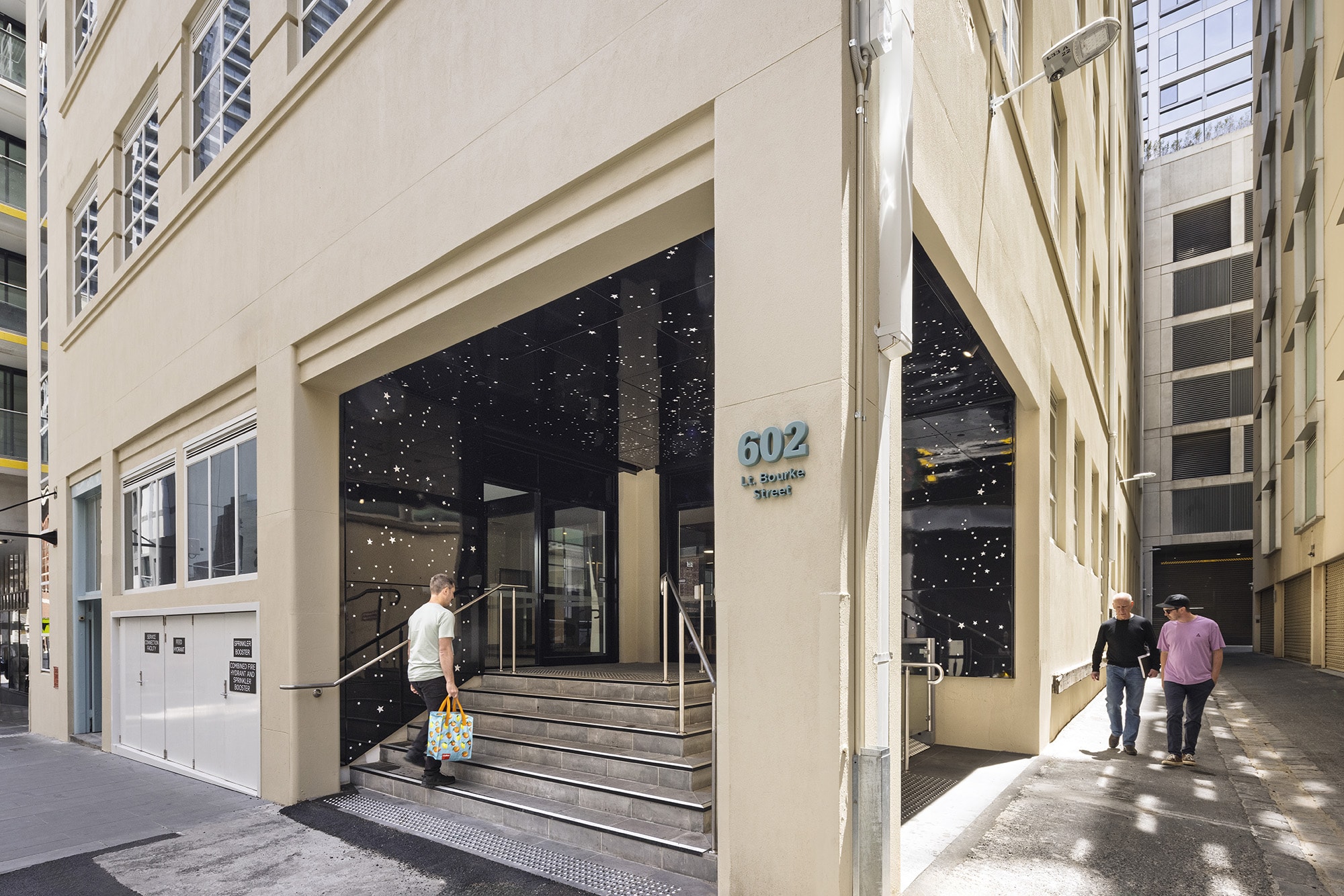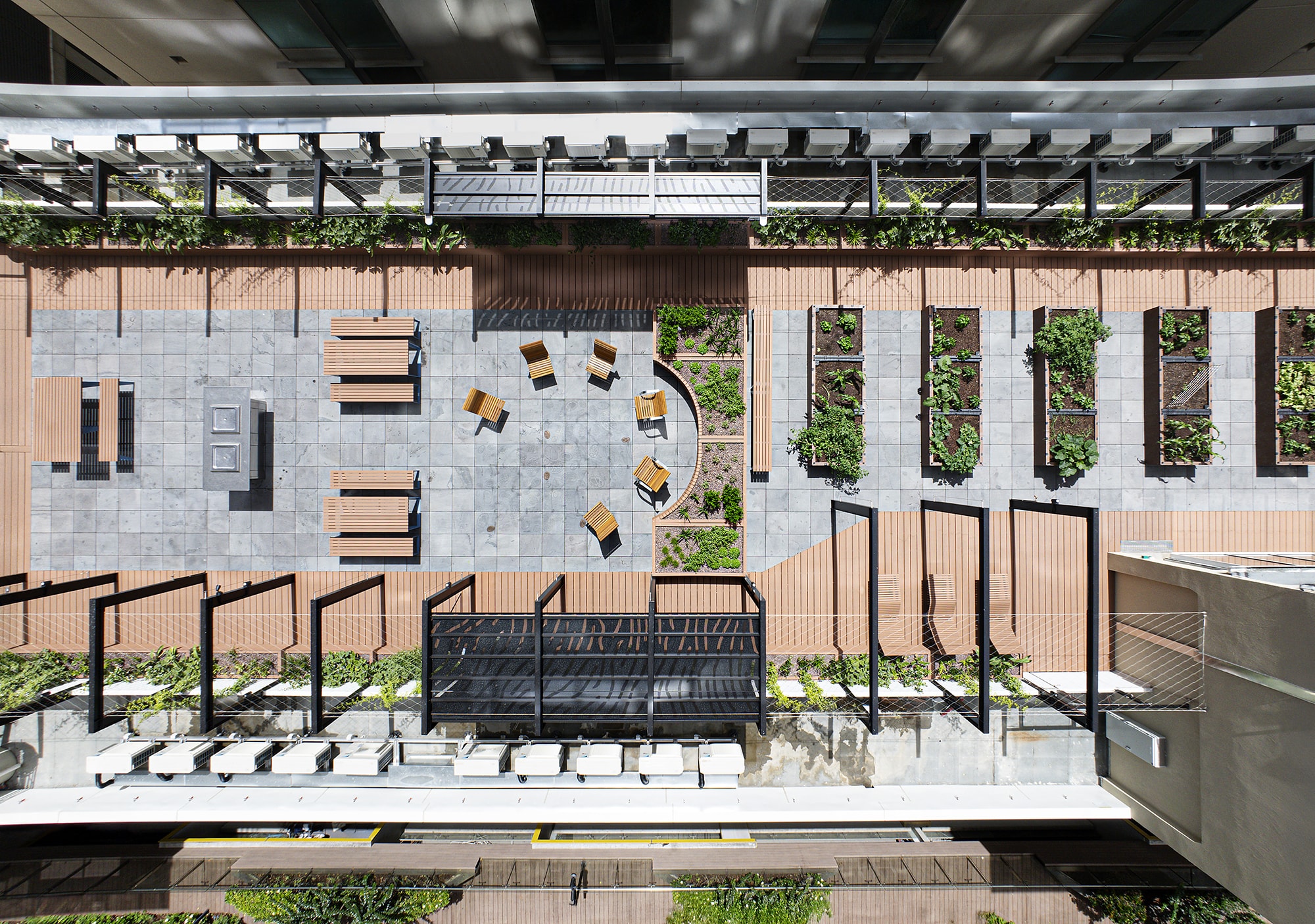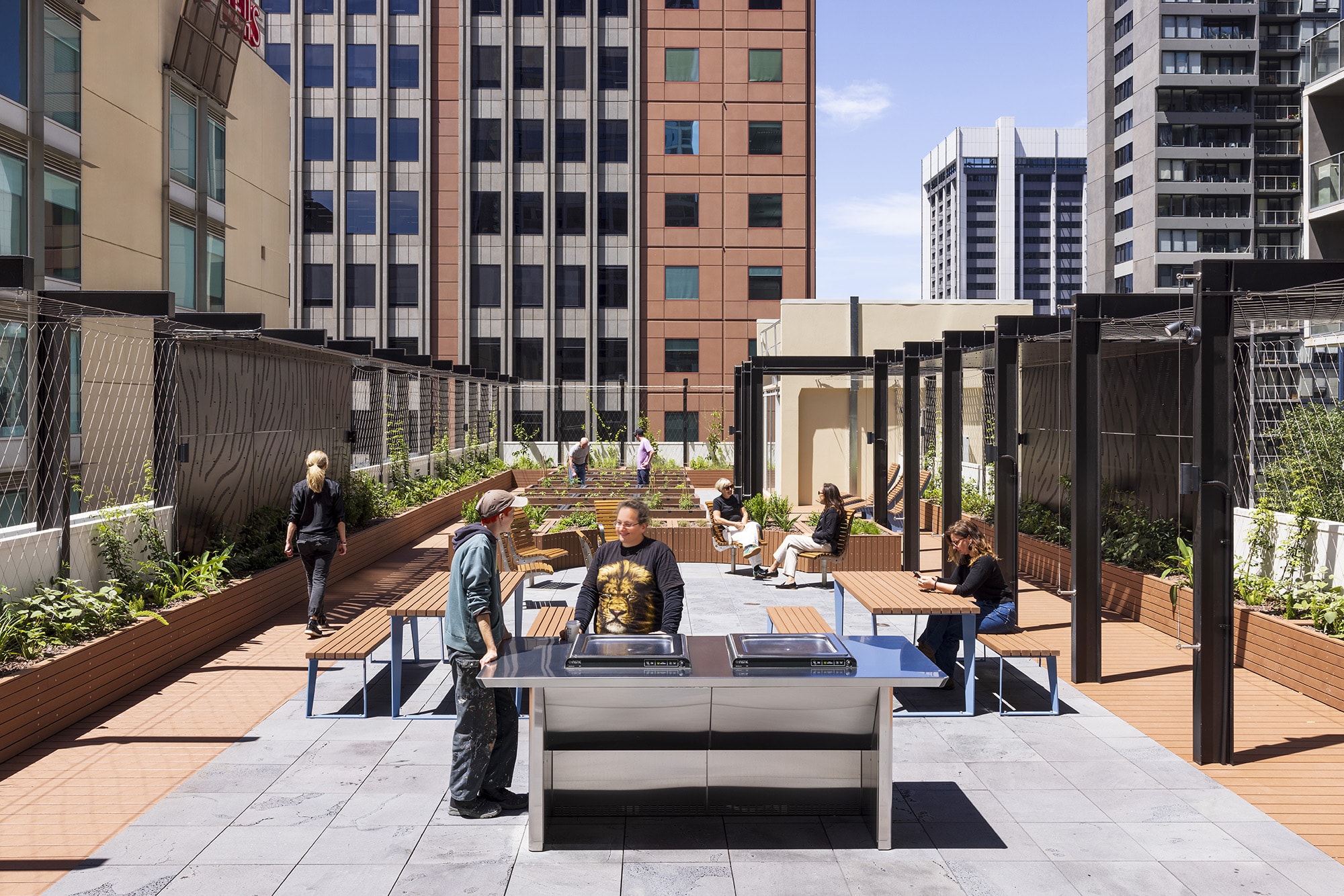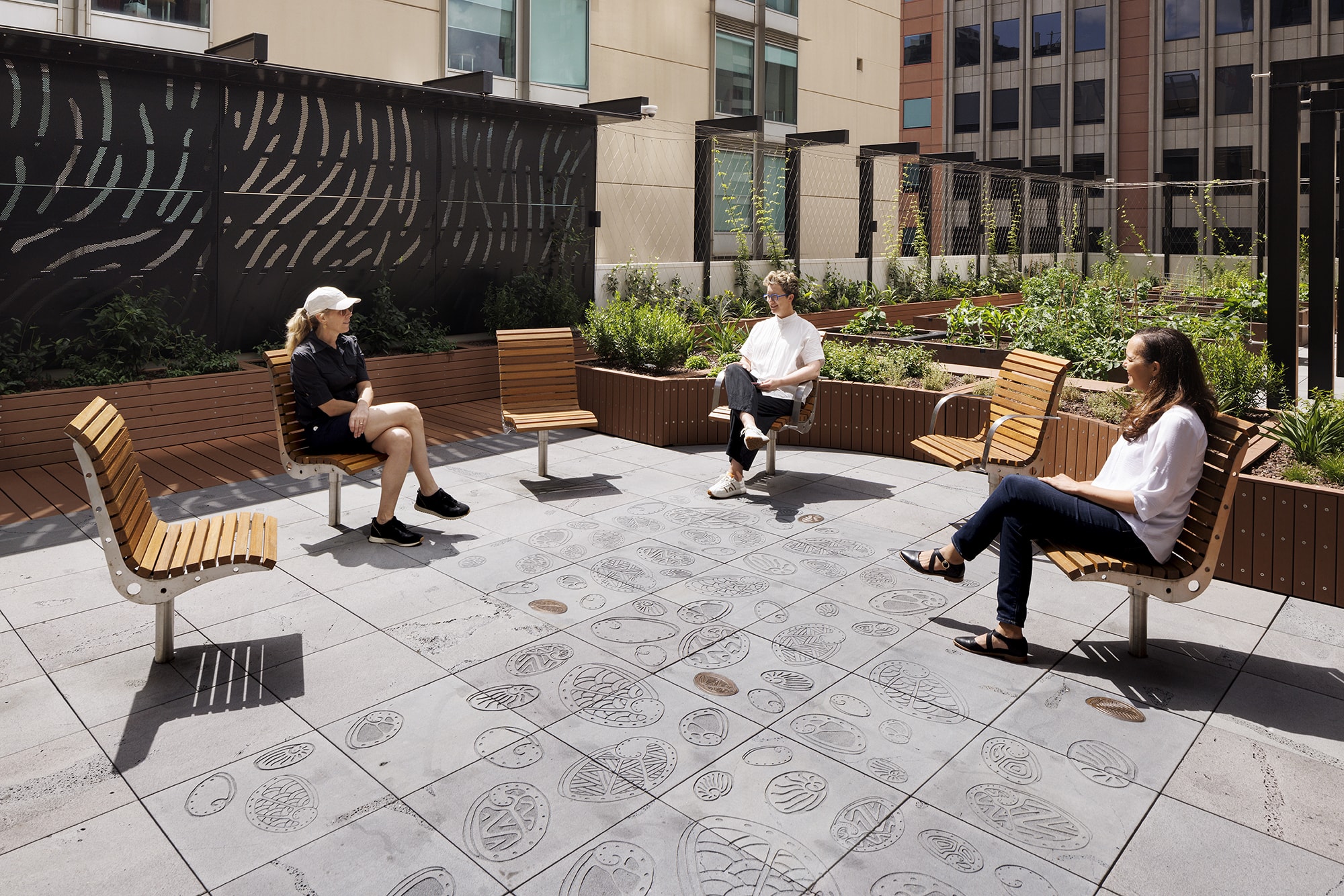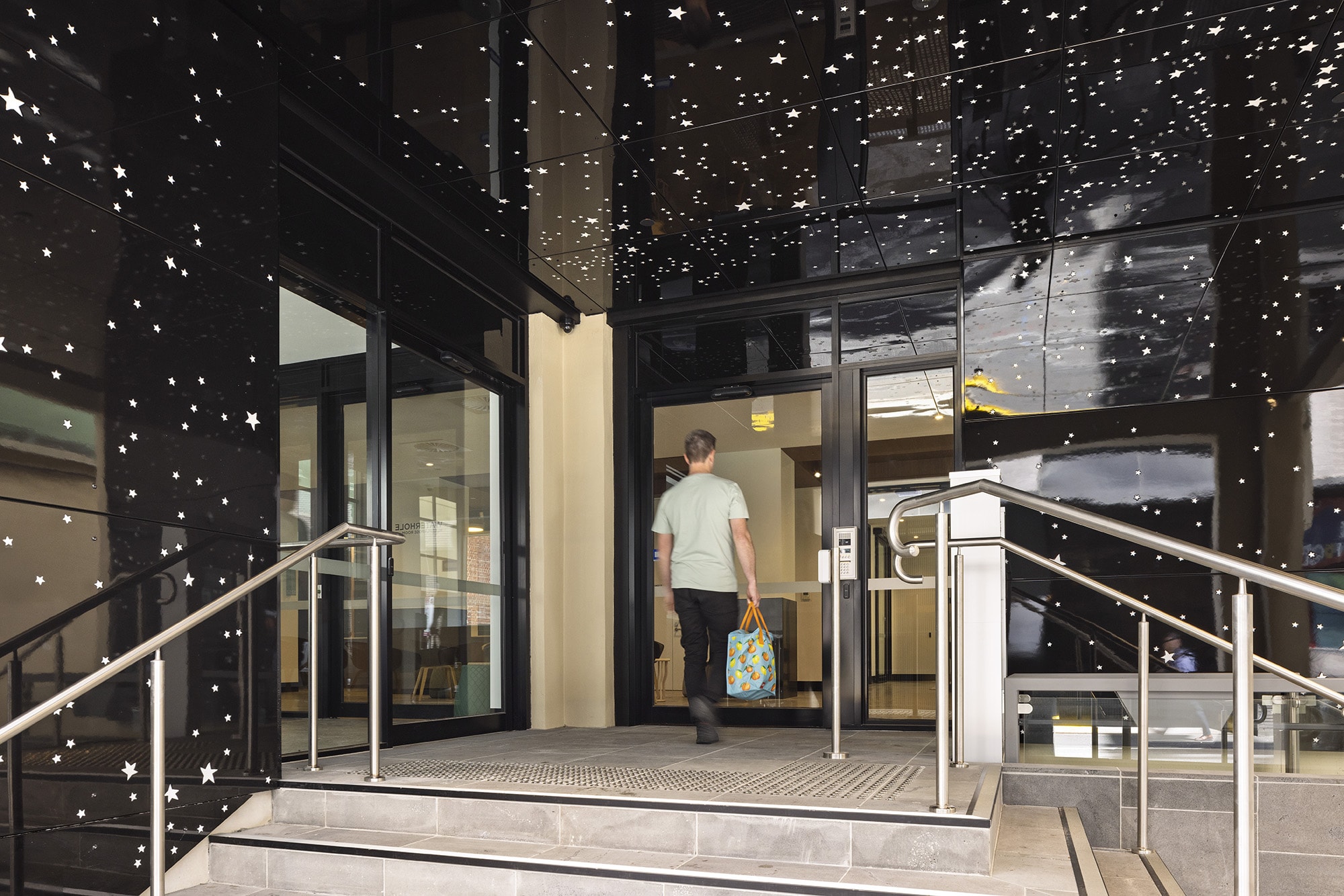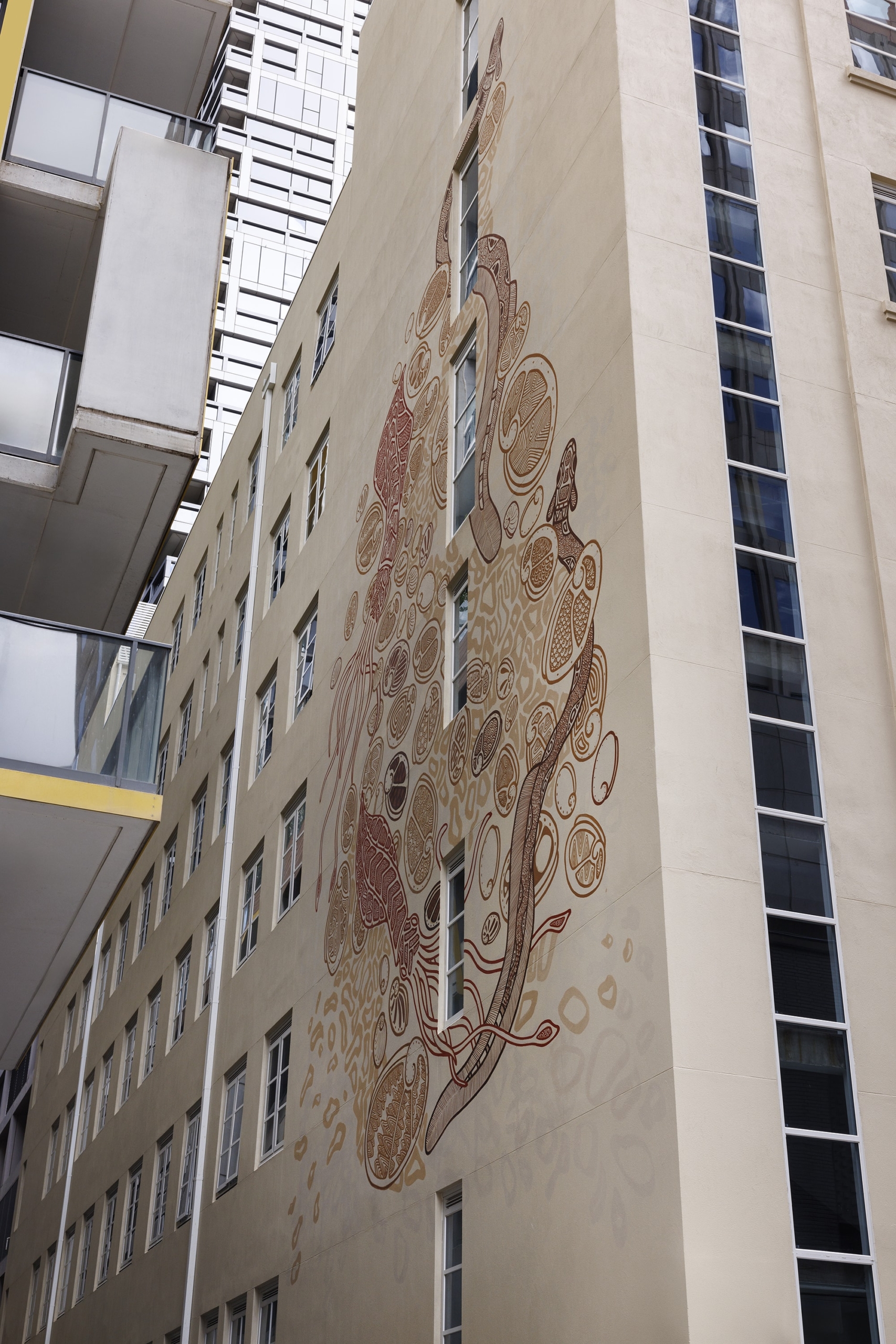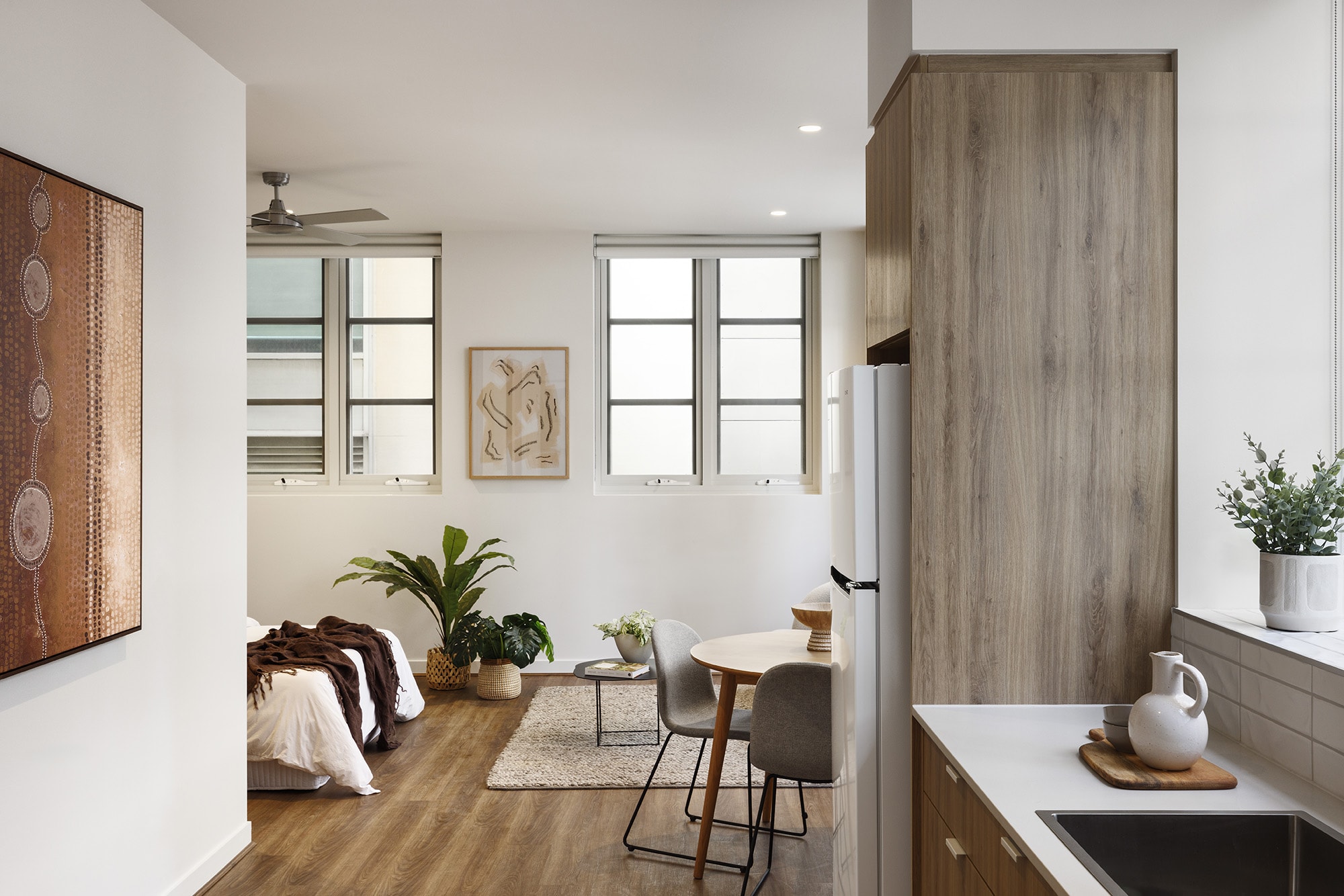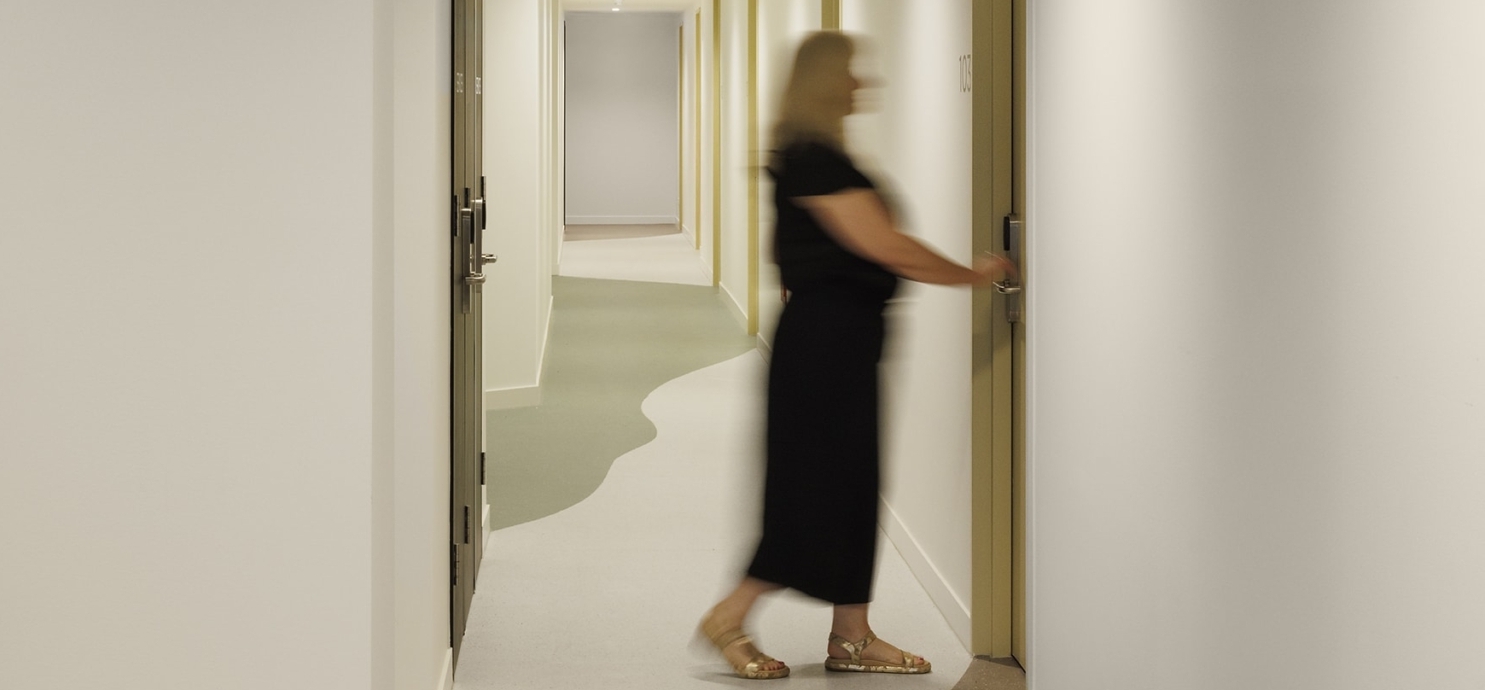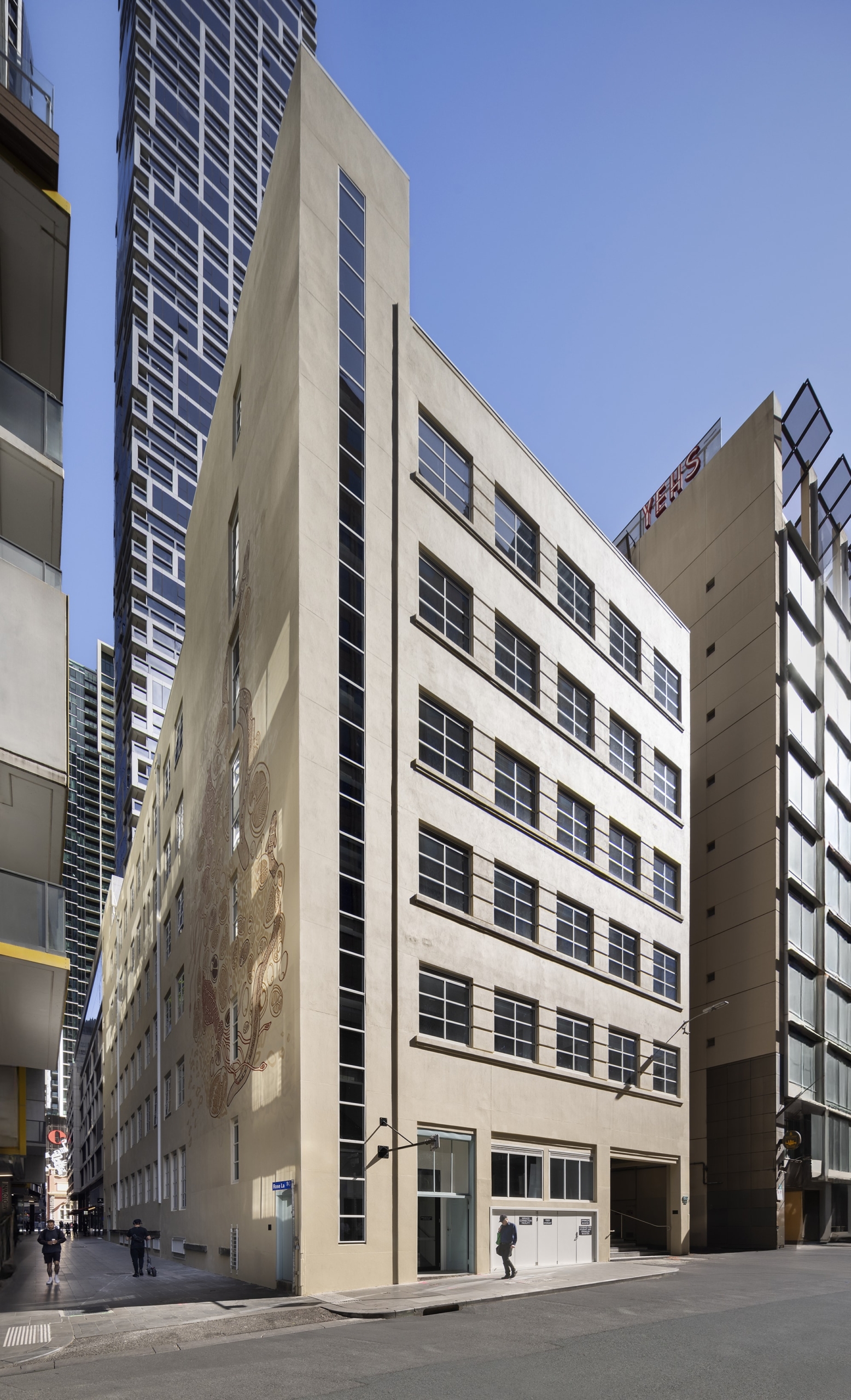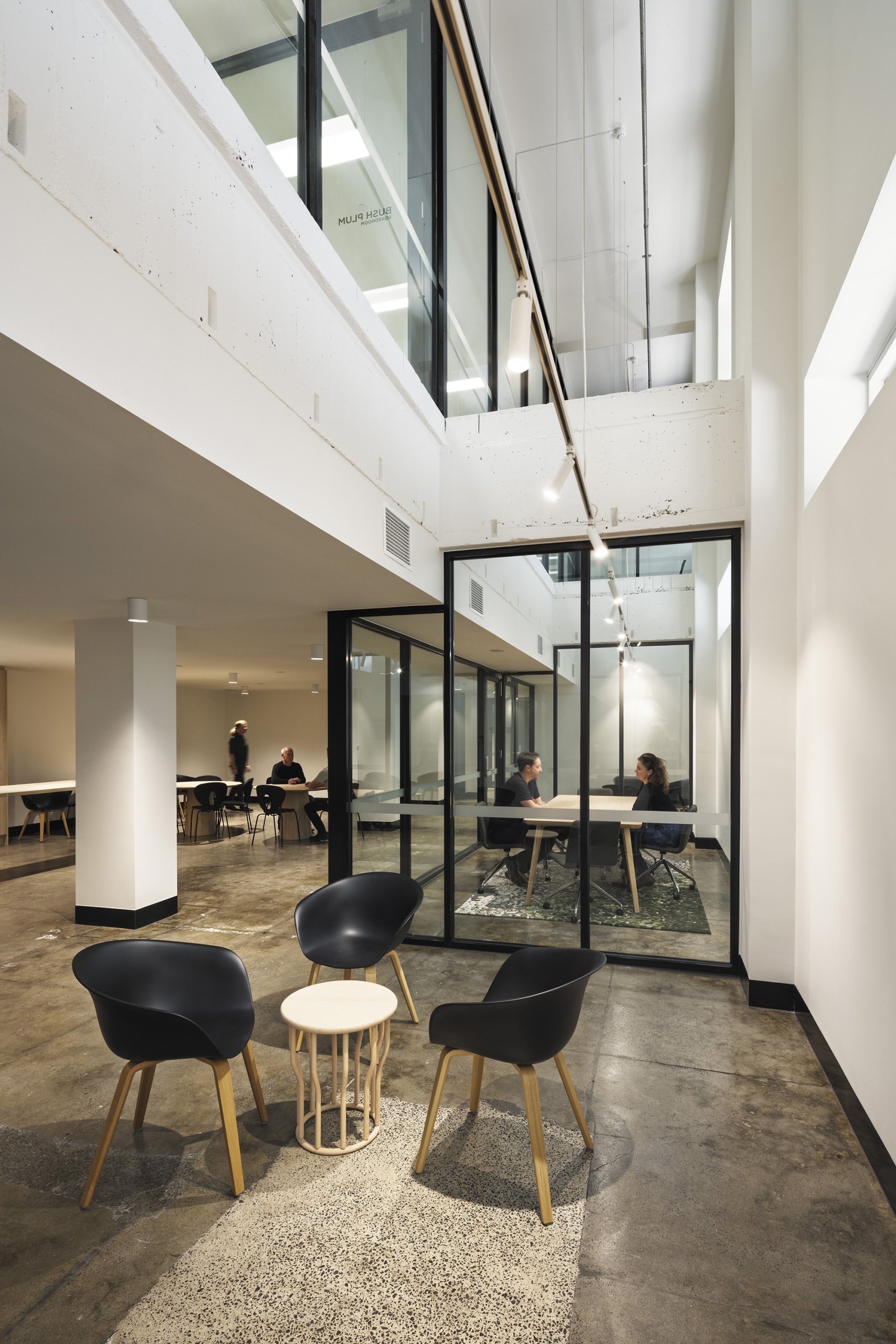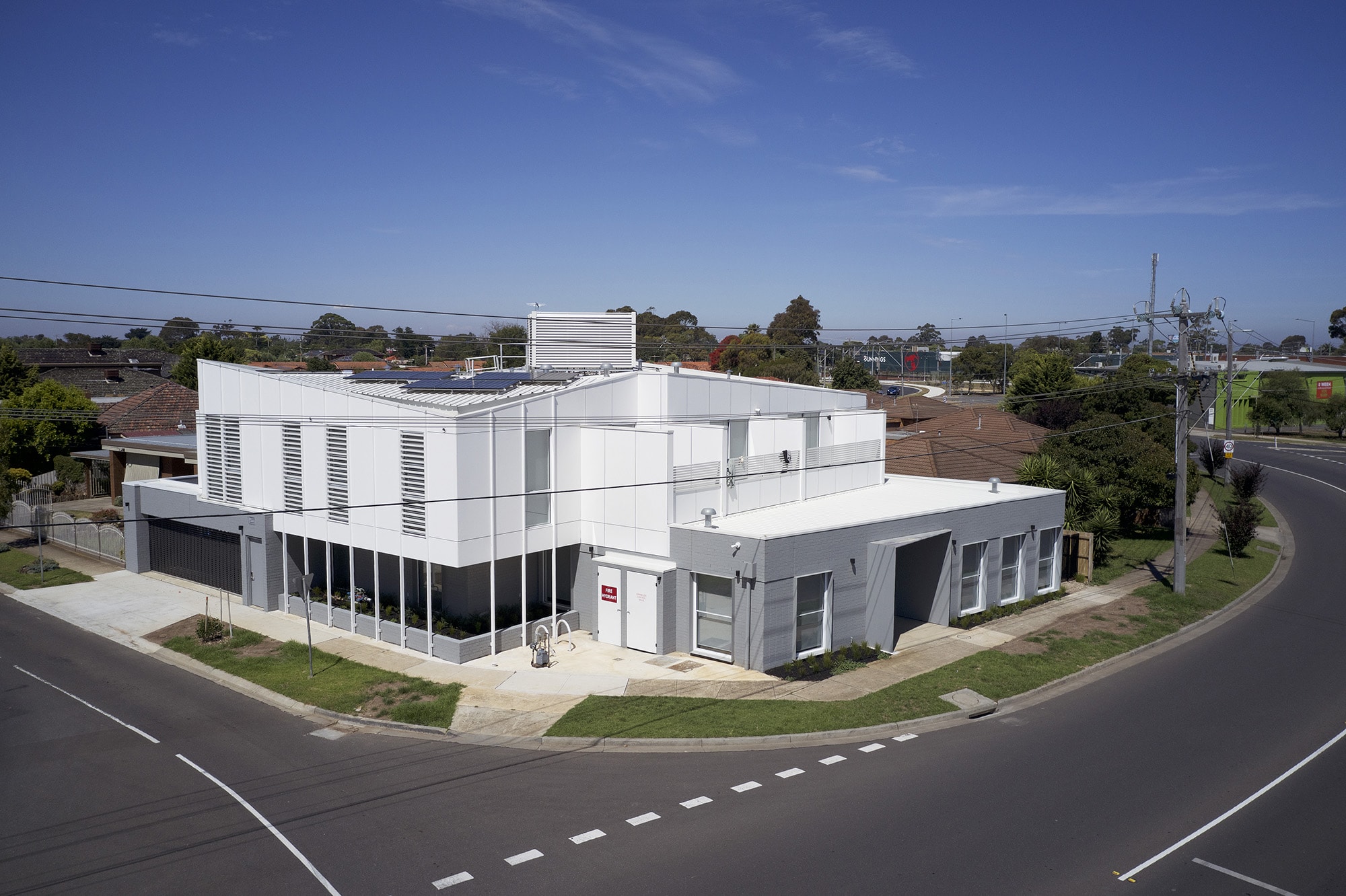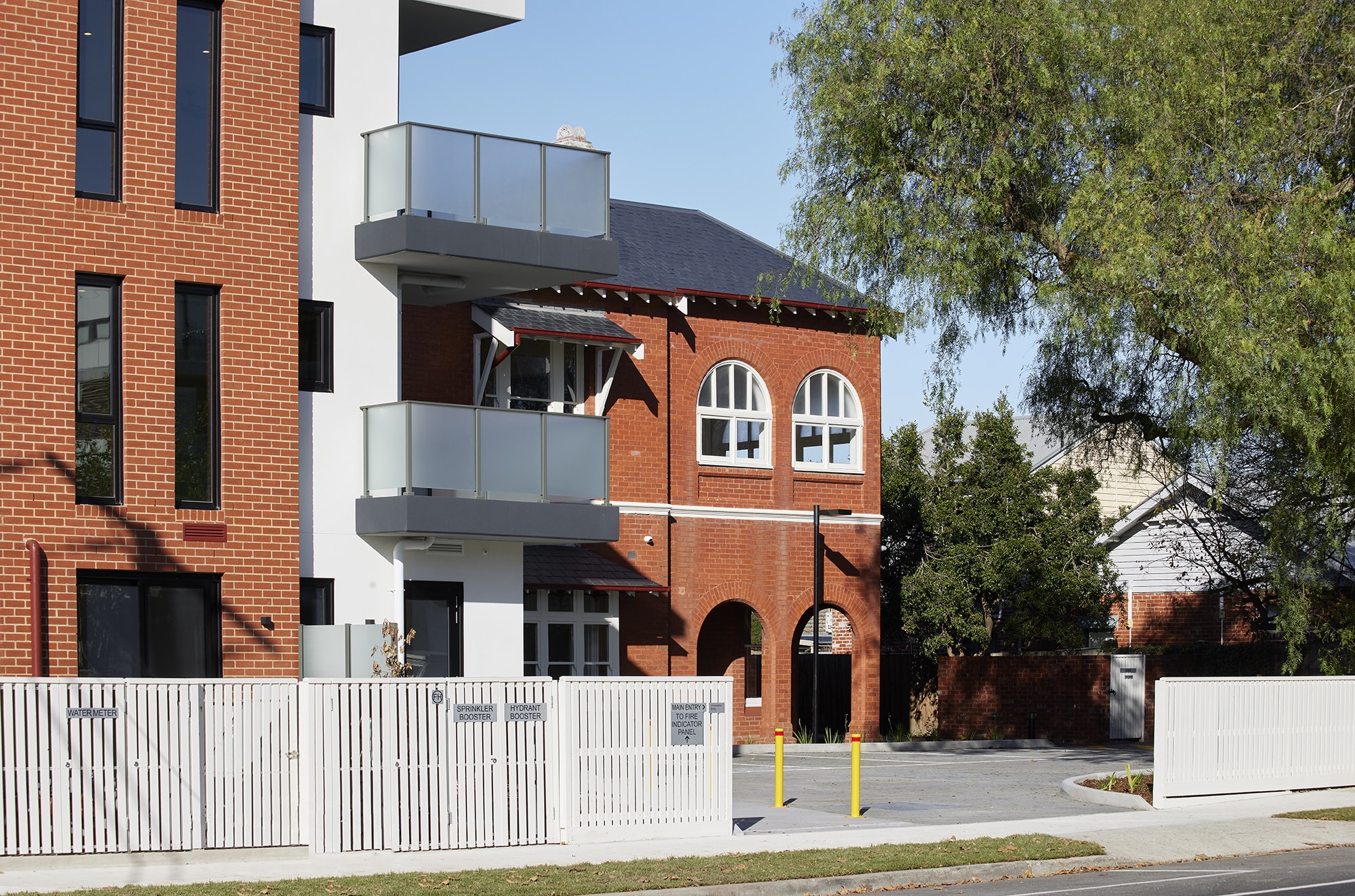About the development
A first-of-its-kind partnership between the City of Melbourne, Unison Housing, the Victorian Government and the philanthropic sector, Make Room is an adaptive reuse project designed to be replicated, potentially benefiting communities nationwide.
The 50 studio development provides tailored and supported transitional housing for people sleeping rough or experiencing chronic homelessness. Unison manages tenancies while cohealth delivers wrap-around support and Ngwala Willumbong Aboriginal Corporation (Ngwala) supports First Nations community members to transition into, as well as sustain, their Make Room tenancy.
Awards
2024, Pioneering Award
AAA Awards for Excellence
2025, Civic Leadership Award
AAA Awards for Excellence
2024, Project of the Year Award
UDIA Victoria Awards
2024, Affordable Housing Award
UDIA Victoria Awards
2024, Judges Award
UDIA Victoria Awards
Property Features
- 50 studio apartments
- Rooftop garden
- Onsite consultation rooms
- 10-Unit Phoenix Floor
- Dedicated LGBTQI+ Floor
Building design
Make Room transforms a heritage-listed building into 50 studio apartments purpose-built to support people transitioning from chronic homelessness. Each studio apartment includes a bedroom, ensuite bathroom, kitchenette, laundry and temperature control.
The building has a rooftop garden space with a BBQ area, gathering circle and all-weather pavilion designed for connection amongst renters, while the basement and ground floor hosts flexible spaces to facilitate interaction among residents, as well as the delivery of on-site health and wellbeing support services.
Make Room has a dedicated floor of 10 units which is called the Phoenix Floor. This floor is a safe and affirming space for women who have experienced family violence.
Supportive housing partnership
Unison, in conjunction with the City of Melbourne and in partnership with cohealth, Ngwala Willumbong Aboriginal Corporation (Ngwala) and the Victorian Government, delivers the Make Room Supportive Housing Partnership at 602 Little Bourke Street, Melbourne.
Through its Supportive Housing partnership, Make Room offers access to a wide range of health and social services tailored to the unique needs of each individual. Unison manages the day-to-day operations of Make Room and provides tenancy management, maintains the building and arranges for the onsite 24/7 security.
cohealth staff based on-site provide wraparound support services to be provided onsite to rentals, including podiatry, physiotherapy, dietetics and dental healthcare. Specialist health services, including mental health care, are integrated into the program to address the complex health needs often faced by people who have experienced chronic homelessness.
Ngwala is a key partner at Make Room. A dedicated Ngwala Housing First Worker is based at Make Room part-time to support Aboriginal and/or Torres Strait Islander community members to transition into their tenancies as well as help them sustain their tenancy at Make Room.
Culturally specific principles and practices are embedded throughout the tenancy journey. This support will continue when the person is living in their next home after they leave Make Room. Ngwala is invested in collaboration with First Nations people to ensure culturally informed program delivery, service and design.
Ngwala collaborates with the allocation panel to manage referrals for Aboriginal and/or Torres Strait Islander individuals, ensuring culturally safe practices and obtaining appropriate consent throughout the process. The allocations process is trauma-informed, recognising the impact of historical and intergenerational trauma on Indigenous communities.
Through this comprehensive approach, Make Room aims to create lasting, positive change for its renters, ensuring they have the tools and support needed to thrive. The project achieves this by creating a dignified and supportive pathway from the streets to a place of safety, providing a comprehensive housing and support services to individuals experiencing chronic homelessness.
Breaking the cycle of homelessness
Make Room is designed to provide more than just housing; it offers place-based care aimed at improving the health, wellbeing, and social outcomes of people experiencing homelessness in the City of Melbourne. The project adopts a human rights approach to housing and healthcare, prioritising the reduction of harm and the delivery of trauma-informed, consumer-directed, holistic, and strengths-based support.
Unison’s experience in housing and homelessness services has shaped Make Room’s design and delivery, bringing best practice leadership to the project. As part of the consultation process, Cultural Safety Guidelines were developed through meaningful engagement with Aboriginal and Torres Strait Islander people, whose insights into homelessness informed culturally appropriate design and service delivery, so that renters feel welcome and safe.
Make Room’s service delivery model draws on a range of national and international best practice supportive housing models and is aligned with Housing First Principles, recognising stable housing as a fundamental right and an essential foundation for improving other aspects of life. Renters receive ongoing case management support from housing workers, helping them to maintain their tenancies and navigate the challenges associated with transitioning from homelessness to stable housing.
A pathway to permanent housing
Make Room is what’s called transitional housing, meaning it is supported short-term housing that acts as a stepping stone to more permanent housing. Make Room renters stay for up to 12 months, or until they have secured alternative housing. The aim is to provide support for these vulnerable people, tailoring specialists with the ultimate aim of creating pathways into permanent housing.
Renters at Make Room must be eligible for Victorian Housing Register (VHR) approval, sleeping rough or experiencing homelessness in the City of Melbourne Local Government Area. Priority is given to those listed on the City of Melbourne By Name List (BNL), a point-in-time tool that measures homelessness and tracks individuals on a case-by-case basis. Individuals not currently on the BNL may still be referred if they are sleeping rough or have experienced an episode of rough sleeping in the past six months within the City of Melbourne Local Government Area.
The Make Room partnership brings long-standing familiarity and expertise in addressing the complex needs of those on the BNL, most of whom experience the ongoing effects of prolonged homelessness, including significant trauma and health issues.
Integrating into the community
Our whole community benefits when we work collaboratively to help people out of homelessness. We’ve seen that people can take back control of their lives when housing and tailored support is available. Access to quality housing is not only essential for social equity, it’s also critical to Melbourne’s long-term livability and the economy.
Research shows that for every $1 invested in affordable housing, there is a $3 benefit to the community due to worker retention, educational benefits, enhanced human capital, health cost savings, and reduced family violence and crime. It is an investment in both essential infrastructure and people.
In addition to helping our community’s most vulnerable people, the project created more than 70 jobs during its construction phase, and has created dozens of ongoing clinical, cleaning and maintenance roles now that the building is open. Additionally, Unison provides 24/7 security services onsite, focusing on safety and engaging with residents in a strength-based, client-centered approach.
Unison Housing and our partners:
- Provide reception services for residents and visitors.
- Implement rooming house rules, including visitor check-ins.
- De-escalate any conflicts and tense situations.
- Coordinate responses for any after-hours incidents.
Security staff collaborate with Victorian Police and other emergency services as needed and have received trauma-informed training to support residents compassionately and sensitively. All onsite staff also have Multi-Agency Risk Assessment and Management (MARAM) training, ensuring they are equipped to effectively, collaboratively and consistently respond to family violence risk.
Community information and feedback
We recognise that neighbours and businesses near Make Room may have questions and want to know more about how we can support them. We work closely with neighbours and businesses and have provided an opportunity for neighbours to visit the building and ask the Project Team questions about Make Room.
Tenanting of the site commenced in early 2025 and was completed in June 2025. This was a gradual process to ensure each resident received the tailored support and care they needed to achieve their long-term housing goals.
If you have feedback about Make Room you can share it via our feedback form.
Project funding and impact
The City of Melbourne raised more than $16.1M for the $24.9M capital project, including $9M capital funding from the Victorian Government, in addition to a range of leading philanthropic and corporate partners providing funding. The Victorian Government has also committed the sole operational funding of $5.2M over two years for on-site support and specialised tenancy management.
Costa from Gardening Australia visits Make Room’s rooftop garden to explore how gardening is helping residents heal, grow, and connect through therapeutic horticulture.
Want to discuss a project?
To discuss a development project with our team, don’t hesitate to contact Unison CEO James King on 03 9349 0250.

